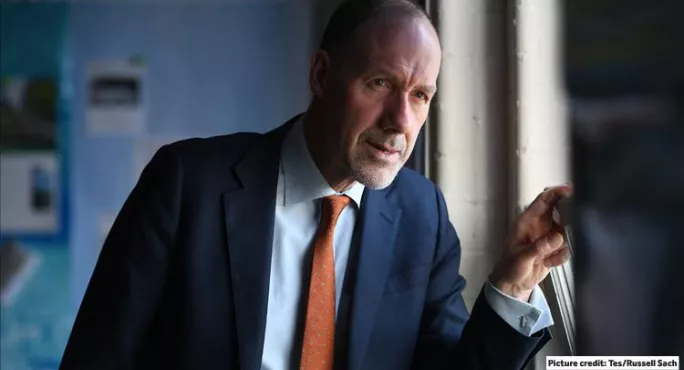As English teachers always tell their pupils, good writing is enhanced by detail. If you’re doing some descriptive writing, don’t write: “The old church was really spooky”. Instead, paint a picture with words. It’s how you grab your audience, how you draw them into your story, how you get them to see the world you want to create.
If it were up to me, I’d deploy an English-teacher-in-residence at the Department for Education. Because today I went to Manchester to sit in a darkened auditorium to listen to Justine Greening’s education speech to the Conservative faithful.
Someone had decided that the conference mood needed to be established with some well-chosen songs. Thus, with the predictability of the soundtrack to a Richard Curtis movie, we entered to the strain of ‘Let’s Stick Together’, took our seats to ‘Mr Blue Sky’, and chatted with anticipation through ‘Don’t Stop Believing’. Then the same songs looped endlessly over. Clearly someone at Tory HQ believes in the power of subliminal messaging.
There were various speakers - the Conference Chairman, the Party Chairman, the First Secretary of State. And before the Education Secretary even walked out onto stage, the people behind me said: “God the atmosphere here this year is deadly - clearly people are still furious.”
But in truth they should have stayed, because despite a tokenistic dose of gratuitous Labour bashing (the unfair allegation that Labour’s only education legacy was grade inflation), we got onto policy.
And this is where a broad-brush speech on key themes - teacher recruitment and retention; technical skills; alternative provision; and literacy - would most certainly have been enhanced by some of the details subsequently released on their website by the Department for Education.
Since she attended ASCL’s annual conference in March, Greening has said that recruitment and retention are her key priorities. Today we began to see how the policy might play out in practice, with new incentives to attract and retain teachers in shortage subjects (maths, STEM, modern foreign languages).
Schools struggling most with chronic recruitment will gain extra targeted funding for professional development and the best training providers across the system will be incentivised to set up in the areas of greatest challenge.
If I’d been writing Greening’s speech I’d have made these measures much more tangible because they demonstrate a department deploying an evidence-based approach - targeting support where it’s needed, testing out impact, and then evaluating. It’s what we’ve been calling for.
That’s why I welcome the announcement of new English hubs, alongside the expansion of existing maths hubs in areas of greatest need. For me, literacy is the final frontier of our education system. Too many children arrive at school without the vocabulary, the linguistic creativity and resilience, the habits in talk and reading that would give them the grounding they deserve.
If today’s announcement means a strongly focused campaign of early years development, then there’s much to celebrate.
Similarly, we can surely only applaud the attention to the children on the margins - those who find themselves in the euphemistically named ‘alternative provision’. These pupils too often get a raw deal, and it’s a bold education secretary who speaks about them at a Tory conference. The age of ideology may finally be over.
Today’s big themes strike me as the right ones - bringing more teachers into the profession and keeping them there; unleashing the power of literacy to the children who need it most; urgently improving alternative provision; and extending high-quality vocational education.
On the morning of the last general election, I said I hoped we would have no more grand visions from the government about education.
Today in Manchester there was no list of untried wacky wheezes or policy pyrotechnics.
Nor, however, was there enough about the school funding crisis - an issue which won’t go away until the Treasury recognises that it must act.
But in the mixture of conference speech and website notes there was the glimpse of a department now determined to enter into the unglamorous but important next phase of education development - working with the profession to help the children who need us all the most.
